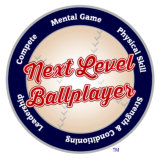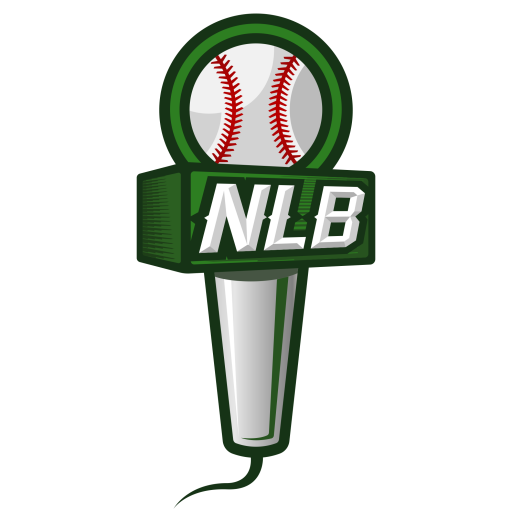
If you’re a hitter, listen up. If you’re a catcher, get cozy and read through this interview twice. Today we are joined by Dodgers’ catcher Tim Federowicz. His last name is hard to say, but he is one of the top catching prospects in the big leagues for a reason!
Tim earned a scholarship to play college baseball at the University of North Carolina. After his Junior year, the Red Sox drafted him in the 7th Round of the 2008 Draft. After being traded (twice in one day), he ended up in the Dodgers organization where he made his big league debut in 2011. Many thanks to Tim for taking some time to talk about adjusting to college baseball, the best catching advice for young catchers, his mindset behind the plate with a speedy runner on first, how he quickly learns how to handle pitchers on a new team, the hitting approach he wished he’d had in high school, and more.
What is one baseball-related lesson that has led to your success through the years?
Respect the game. In high school ball, you enjoy it and maybe decide you want to keep playing. It’s still a lot of fun, but it’s tough, especially beyond high school. It becomes more like a job in college, and it actually becomes your job in professional ball. The biggest lesson I had to learn was not to take it for granted – to work hard every day. I wish I had started doing that in high school instead of waiting until college and minor league ball.
 What was your hardest adjustment when you started playing baseball in college at UNC?
What was your hardest adjustment when you started playing baseball in college at UNC?
Balancing academics and baseball. You’re usually in 8:00 am classes and required to get everything done by noon. You have to learn to be a morning person. You have to take your academics seriously or else you won’t be playing.
What is one piece of catching advice that you would give to aspiring catchers?
Learn your pitchers. You want your pitchers to want to throw to you. Build a friendship with them. Make sure they know that you are on their side. In college and pro ball, you have to make sure you know your pitchers. And block everything!
As you’ve moved from team to team in the minor leagues, do you have any tips on how to quickly adjust to catching a new pitching staff?
Catch bull pens. You have to – it’s part of your job. This helps you learn pitchers. There are always new guys coming up. I try to watch film on them, too. It’s about constantly learning. I’m going early to training so I can get a head start. You have to keep learning.
You’re behind the dish and there is a speedy guy on first base. What’s your mindset?
I want him to run. I’m almost baiting him to run. I always anticipate it so I’m not caught on my heels. The worst thing in the world is when that guy is safe when you could have gotten him out because you made a bad throw. In my head, I’ll say, “Come on, steal. I want you to steal.” I actually get really excited for them to steal. Then I’m anticipating it, and I’m ready.
What is one thing right now that you’re working on in your game?
Right now, I’m learning the staff and the players. I’m trying to get comfortable with everybody. Comfort level and relationships are huge in this game. If you’re comfortable behind the plate, you’re going to play better. We have a lot of young guys who are new this year. I have a lot of work ahead of me in spring training.

What’s one of the bigger adjustments you’ve made in the minor leagues, whether with the Dodgers or the Red Sox?
Develop an approach. I don’t ever remember having an approach in college baseball. Everyone needs an approach, but I think I used to just swing at everything. But now, I’ve learned what kind of hitter I am. I look for fastballs in certain spots. For fastballs, you want to make sure they are in your zone when you are ahead in the count. You have to learn your strengths and sit on locations instead of saying, “Alright, I’m just going to hit a fastball.”
What’s your best piece of hitting advice?
Don’t be afraid to hit with two strikes. You have to be just as confident with two strikes. That’s another big adjustment I’ve made this year. Take a couple strikes. I don’t mind having two strikes. Of course, you have those days where you may strike out two or three times; it’s going to happen. That’s the thing in baseball, you can fail umpteen times and still be a hall of famer. That’s why baseball is the greatest game in the world.
Do you have a favorite drill that helps you with arm strength?
Ever since I was in high school, I learned a good long toss program. I stretch it out when I can, but don’t overdo it. You don’t to always go on maximum effort. You want to go at, maybe 85 percent, or just enough momentum that you have good carry on the ball. Even if you have to bounce it, that’s okay. Don’t be afraid to bounce it. I long-toss with pitchers who have stronger arms than I do, and I have to bounce it. I don’t care. I don’t want to wear myself out trying to keep up with the next guy.
What is one piece of advice you’d give to aspiring baseball players who want to get better?
Stay focused. Concentrate every day. Especially stay focused during the games. You can work as hard as you want, but if you can’t stay focused during the games, it’ll never work for you.

Never Miss the Latest News!
Join The Other 7,000+ Subscribers Who Recieve Our Weekly Emails

